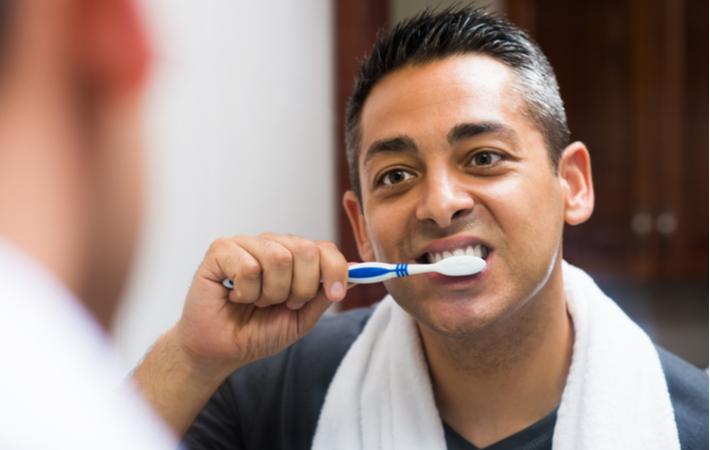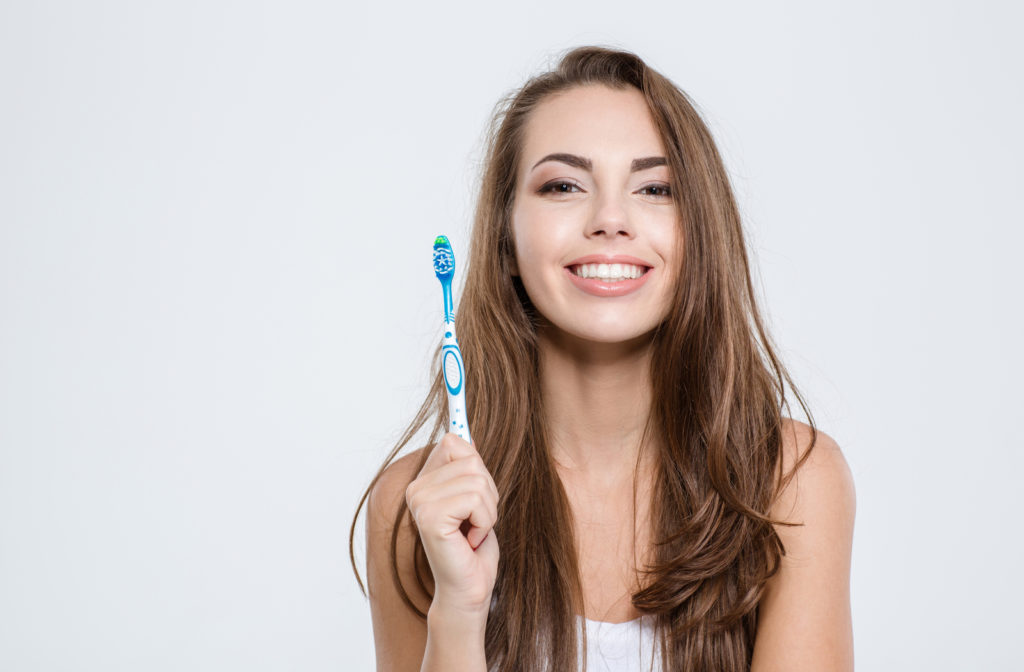A toothbrush is a necessary instrument for good dental hygiene — it helps us keep our teeth clean and free from bacteria, and protects our teeth by helping apply toothpaste. Once your toothbrush has been worn down from use, it should be replaced promptly to ensure the continued protection of your teeth.
At Shawnessy Dental, we offer dental cleaning services that, alongside brushing daily, will help you continue to smile your brightest and avoid any complications due to poor dental hygiene. Book an appointment with us to get your teeth the protection they deserve.
When Should You Change Your Toothbrush?
The Canadian Dental Association (CDA) recommends that you change your toothbrush at least once every 3 to 4 months. Overall, the most effective toothbrush is soft with rounded bristles.
If you have a child and are concerned about them not replacing their toothbrush often enough, remember to check to see if the bristles have been worn out or bent down — this is a sign that the toothbrush may start hurting their gums and a replacement is necessary.
Why is it Important to Change Your Toothbrush?
Your toothbrush is an essential tool that helps you protect the health, longevity, and integrity of your teeth. Brushing, as well as flossing, helps get rid of bacteria in your mouth that can cause tooth decay and gum disease. To properly protect your mouth, your toothbrush should always be in good enough shape to do its job effectively — if it is not, then it is time to seek a replacement.
Once the bristles have started to become less stiff, much shorter, or start falling out, you know it is time for a replacement. Without strong bristles, your toothbrush can cause harm to your gums and teeth, and will not be effective at cleaning food, plaque, and bacteria out of your mouth.
Some general situations you may warrant replacing your toothbrush are:
- If you or a family member have been sick, you should replace your toothbrush. You do not want any lingering viral and bacterial infections to cause you to get sick again, or have a family member’s sickness affect the integrity of your toothbrush by proximity.
- You might want to replace your child’s toothbrush more often than every 3 to 4 months — children can be more prone to causing damage to their toothbrushes and wearing them out quicker.
- If anyone else uses your toothbrush by accident, replace it as soon as possible.

How to Properly Brush Your Teeth
Some general tips you should follow every time you brush your teeth are:
- Brush your teeth 2 times a day (in the morning and at night).
- Use a toothbrush with soft, rounded bristles and a head that is small enough to reach all parts of your mouth. You can also use an electric toothbrush that has the CDA seal of approval.
- Place the brush at a 45-degree angle where your teeth meet your gums, then press firmly and use small circular movements to gently rock the brush back and forth.
- Avoid scrubbing your teeth — vigorous brushing can make the gums pull away from the teeth and can cause damage to tooth enamel.
- Brush all surfaces of the teeth, including the tongue-side and cheek-side. Pay special attention to the front teeth and ensure you are reaching all surfaces of the back teeth.
- Brush chewing surfaces more aggressively with short strokes.
- Brush your tongue from back to front — brushing your tongue helps remove plaque, which can help prevent bad breath and stop the growth of bacteria.
How to Take Care of Your Toothbrush
When removing plaque and other debris from your mouth, toothbrushes can become contaminated with bacteria, blood, saliva, oral debris, and toothpaste. It is usually recommended that you rinse your toothbrush with tap water before and after brushing to counteract the contamination of your toothbrush. To take proper care of your toothbrush, you should:
- Not share your toothbrush — toothbrushes can have germs on them that can raise the risk of infection
- Rinse your toothbrush with tap water until it is completely clean after brushing, then let it air-dry.
- Store your toothbrush in an upright position — if more than one toothbrush is being stored in the same container, avoid letting them touch each other.
- Not soak toothbrushes in disinfecting solutions or mouthwash — it may spread germs under the right conditions.
- Not use dishwashers, microwaves, or ultraviolet devices to disinfect your toothbrush — these methods may damage the toothbrush and make it unsafe to use.
- Avoid storing toothbrushes in closed containers — this can encourage the growth of bacteria.
Keep Smiling at Shawnessy Dental
To stay on top of your dental hygiene, consider booking an appointment with Shawnessy Dental for a routine checkup and cleaning. Our dedicated and friendly staff is committed to ensuring that your teeth get the protection they need while at our office. If you have any questions or concerns about dental cleanings or toothbrushes, please contact us.


